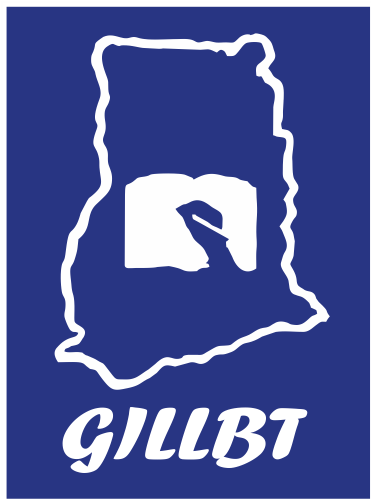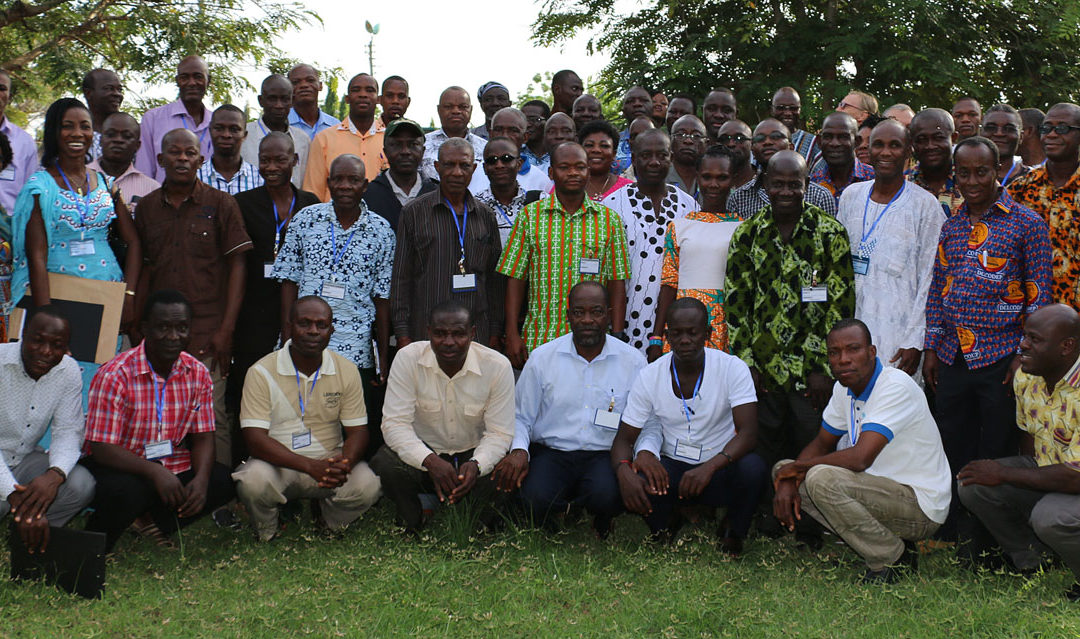The role of local languages as a catalyst for national development cannot be over-emphasized. Local languages are key for the attainment of any sustainable development and therefore need to be deployed in the different domains of national life. In spite of the critical role that local languages play in education and development in general, many development interventions are implemented without due consideration to the place of local languages in the attainment of programme goals.
GILLBT has for many years been at the forefront of developing Ghanaian languages, particularly the minority ones and using them as a springboard for the development of the language communities in various domains such as literacy, improvement of learning outcomes in formal schools and Bible Translation. To scale up this language development work, GILLBT on February 1,2015 launched the Mother Tongue Café Dialogue Series– an advocacy platform for the use of Ghanaian languages. The Mother Tongue Café Dialogues seeks to create a “safe place” for discussions on the appropriate role of our languages. A number of “Dialogues” have taken place under the auspices of this initiative. In the spirit of the “Dialogues,” GILLBT in partnership with Wycliffe Bible Translators Netherlands, organized a Mother Tongue advocacy conference from 7th – 8th July 2016 in Tamale. The main objective of the language conference was to draw public attention, especially the participating organizations and government agencies, to the role of local languages in education and development generally, so they can begin to reflect and hopefully give due consideration to the role of local predominant languages or mother tongue in the design and implementation of their development interventions. The conference was also a platform to advocate the use of many more Ghanaian languages in formal and public education. The main theme of the conference was “The Mother Tongue in National Development” and about 300 people in all, attended the conference and they included university lecturers, heads of government departments, non-governmental organizations, community-based organizations, church and Para-church agencies, traditional rulers and representatives from language communities – and the media was certainly not left out.
The 2-day event started with an opening ceremony chaired by the Northern Regional Director of Education with the Honorable Northern Regional Minister as Guest of Honor. The GILLBT Executive Director, Dr. Paul Opoku-Mensah gave the welcome& keynote address. In his opening keynote the Director, while welcoming the conference, also found it problematic:
Why should we be discussing advocacy for our languages nearly sixty years after our independence? Shouldn’t it be natural for us to be using our languages in different domains of national life?
For a country whose citizens love and value their languages; whose founders affirmed the critical mediating roles of our languages in overall national development; and whose constitution guarantees the promotion of Ghanaian languages, why are we in need of advocacy platforms for our languages?
In response, he outlined a framework within which the country can come to terms with the use of Ghanaian languages in different domains of national life. The first day saw the presentation of two key speakers on two themes: The role of local languages in education and development by Prof. Kofi Agyekum of the University of Ghana, Legon and Comparative Issues in Mother Tongue Advocacy by Dr. Susan Nyaga from SIL Africa. The two sessions were moderated by Prof. Agnes Apusigah, the Dean of the Faculty of Education of the University for Development Studies. The second day had two presentations in the morning by Dr. Samuel Atintono from the University of Education Winneba and Chief Alhassan Issahaku Amadu, the Northern Regional Director of the National Population Council, who spoke on Preparing Ghanaian Languages for deployment in National life” and “the role of local languages in peace building and conflict resolution respectively. In addition, three more presentations on cross-cutting issues, namely the role of local languages in Gender Equality and Women Empowerment by Dr. Alhassan Nantogma (University for Development Studies), the role of local languages in Religious Tolerance by Father Thaddeus Kuusah (Northern Regional Executive Secretary of the National Peace Council) and the role of local languages in Road Safety by Mr. Alexander Ayagtah (Northern Regional Manager of the National Road Safety Commission).
These were all relevant topics to the context of the Northern Region and the country at large given the fact that this is an election year in Ghana. The speakers and presenters used specific case studies or examples to buttress their points and these included the Tharaka project in Kenya that developed literacy materials in the local language for Mathematics, Science, Social Studies etc, the concept and perception of women among the Dagomba ethnic group of Northern Ghana and the development of dictionaries and terminologies in Akan.
The presentations were interspaced with question and answer sessions as well as group work and plenary discussions. The participants’ response was generally positive, as the speeches and contributions they made alluded to the fact that local languages indeed are critical to our educational system and development interventions. They however admitted that resource provision is a big challenge to government and therefore welcomed the collaboration of GILLBT and other stakeholders in the task. The conference confirmed the critical role of local languages in education. Participants from the educational institutions bemoaned the inadequate resource support by government to effectively implement the language in education policy even though they know its importance in enhancing children’s learning outcomes. Based on the contributions made by people, the conference can be said to have increased participants’ understanding of local languages in education and development and also changed their attitudes and perception of the role of local languages in education and development.

